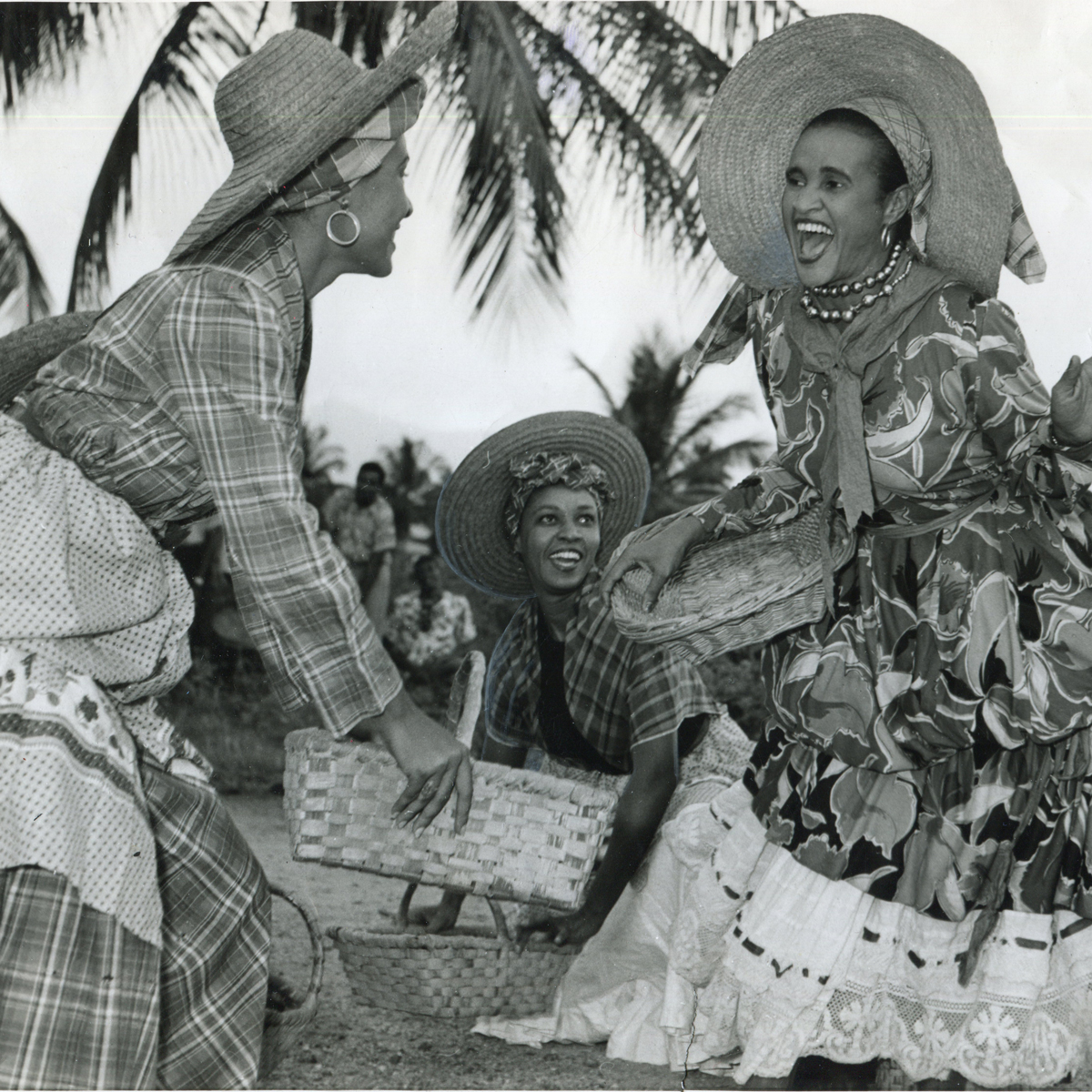Teachers College’s Arnhold Institute for Dance Education Research, Policy & Leadership, established in 2019 with a generous gift from Jody and John Arnhold, champions policy-relevant research to create opportunities for high-quality pre-K–12 dance education that is accessible, equitable and excellent for all learners.
The Institute complements TC’s Doctoral Program in Dance Education, created in 2016 (also with funding from Jody and John Arnhold), which focuses on preparing master dance educators — the teachers of aspiring dance education teachers — along with dance researchers and policy experts.
Now, three new research studies are underway at the Arnhold Institute to advance the ultimate goal of legendary dance educator and advocate Jody Gottfried Arnhold (M.A. ’73): making dance education a staple in American public schools.

EXPLORING OPPORTUNITIES AND BARRIERS Barbara Bashaw, Arnhold Institute Director, is studying pathways to pre-K-12 dance teaching careers for BIPOC students. (Photo: TC Archives)
Barbara Bashaw, Executive Director of the Arnhold Institute, Arnhold Professor of Practice in Dance Education, and Director of TC’s Dance Education program, has developed a teacher-educator study that will examine the opportunities and barriers for students who are Black, Indigenous or people of color who aspire to pre-K–12 dance teaching careers. Given that there are only a few teacher education studies focused specifically on pre-K–12 certification within the field, the Arnhold Institute aims to pioneer and advance this area of research.
Ted Warburton, Senior Fellow at the Arnhold Institute (and Professor of Dance and Interim Dean, Division of the Arts, University of California at Santa Cruz), is implementing a national-scale survey that will provide data on pre-K–12 dance educators and identify the factors and policies needed to connect dancers to sustainable careers in dance education. This information will allow cultural leaders, public school administrators, institutions of higher education, and researchers to understand the systemic factors and policies that help or hinder the career paths of dance educators.
And Matthew Henley, Arnhold Associate Professor of Dance Education, has developed a K–16 research study which seeks to describe the relationship between physical practices and conceptual content of diverse dance classrooms. This research seeks to address Euro-American cultural tendencies to separate the actions of the body from processes of the mind by framing dancing as an intellectual practice.
In addition to publishing results from these studies, the Arnhold Institute will apply the data to two key projects: a data clearinghouse and a Summer Leadership Academy.
The Arnhold Institute Data Clearinghouse aims to not only bolster the research conducted by the doctoral students in the Dance Education program, but to create a critical resource for a relatively young field which, though launched at TC in the early 1900s, did not produce its first research studies until the early 1930s.
“Much contemporary work in dance education is foundational, with an urgent need to match resources available in, for example, music, art, and teacher education — fields that are long-established,” Bashaw says. “The Clearinghouse will enable researchers worldwide to cross-relate data and launch new investigations."
The Summer Leadership Academy for Dance Educators will be launched within the next several years. Data from the inaugural research projects are expected to guide its development and reveal critical needs in the field.
The Arnhold Institute also hopes to add several new Fellows — dance education experts who will focus on cultivating these important pathways for the Institute.
Meanwhile, students in the Ed.D. Program in Dance Education, which will graduate its first class of doctoral students in May 2023, are beginning to design ambitious and socially just research, as well. This spring, in a seminar course taught by Henley, nine doctoral students are implementing pilot studies in preparation for writing their dissertation research proposals. Among the group are:
Zakiya Atkinson, Artistic Director of Zaman Dance Theatre Collective and Director of Fine and Performing Arts for the Cranford, New Jersey, Public Schools. Atkinson’s dissertation research study aims to add to the breadth of literature in dance and social justice education. It will employ “dance-making as an emancipatory process for marginalized groups.” Through this qualitative study, participants will recall, reflect and respond to shared experiences that have impacted them and their communities. These responses will “magnify the intersectional factors that contribute to their marginalized positioning in society.”
Joan Finkelstein, former Director of Dance for the New York City Department of Education and current Executive Director of the Harkness Foundation for Dance. Finkelstein investigates the explicit and implicit cultural messaging in the national, New York State and New York City dance teaching and learning standards. Understanding the intended, textual and perceived messages in these policy documents and how they may challenge or perpetuate inequitable cultural narratives will provide valuable insights for teachers, administrators and future standards writers and further antiracism efforts in dance education.
Chell Parkins, former Executive Director of the Tennessee Association of Dance and lecturer at Middle Tennessee State University. Parkins is a Teachers College Doctoral Fellow. Parkins’ research explores the experiences of Latinx adolescents engaged in culturally relevant dance-making practices. Xenophobia, anti-migration and racist sentiments continue to rise in America despite the rapidly growing population of Latinx youth, which currently represents more than one-fourth of the student population. This research “adds to the contemporary conversation regarding teaching practices that reflect the culture of marginalized student populations,” filling a gap in research focused on Latinx culture in dance education. Since arriving at TC, Parkins has also co-founded and co-chaired the TC Student-Parent Group and served as a University & Institutional Affairs Committee Member, Residential Services Senator and Student Senate Representative to the Faculty Executive Committee.

ADDING THEIR INSIGHTS Students in the inaugural class of TC's Dance Education doctoral program are beginning to design ambitious and socially just research. Among the cohort are (clockwise from top left) Zakiya Atkinson, Joan Finkelstein, Chell Parkins, Pascal Rekoert and Susan Gaddy Pope, all of whom are either working educators, company directors or foundation heads. (Photos: TC Archives)
Susan Gaddy Pope, a dance educator in the Newark Public Schools, a dance education consultant, and Director of the not-for-profit organization I Dance Because. This past summer, Pope had the opportunity to speak with elders in her community as part of a program entitled “Pearls of Wisdom” at the New Jersey Performing Arts Center. While their stories contributed significantly to the landscape of education in Newark, she recognized that they are nonetheless hidden stories. In the spirit of Sankofa (informing the future by looking at the past), and through the African view of Ubuntu (I am because we are), Pope is focusing her research on “the marginalization of embodied pedagogy” in New Jersey urban teacher preparation programs. Pope will engage in narrative inquiry as a way to describe personal stories of embodied educators.
Pascal Rekoert, Interim Dance Program Director and an Associate Professor of Dance at Central Connecticut State University. Rekoert’s research adds to the conversation of dance and gender and explores intersectionality in the dance classroom and its impact on the urban male identity. Although studies of dancing men have increased since the early 2000s, the dearth of research addressing “the conflicting, marginalized identities of non-professional dancers” has prevented dance educators and leadership staff from engaging in informed and inclusive praxis. Rekoert is interested in how the gendering of and within the art form prevents adolescent men from engaging in a dance curriculum and how educators can free teenage boys from the gender straitjacket prevalent in American urban education.
Doctoral students were also key players in the Arnhold Institute’s inaugural symposium — webcast on April 8th 2021 from 5:30 p.m. to 8:30 p.m. Titled “Pioneering Visions for Access and Equity in Dance Education”, the event was co-sponsored by Creating a Better World: Teachers College Celebrates the Harlem Renaissance. It examined 100 years of dance history beginning with the Harlem Renaissance and focus on two early Black leaders who shaped the field of dance and dance education at the crossroads of Teachers College and beyond.
“We believe it is important to reexamine dance and dance education history and the work of important Black and African American pioneers because those histories have largely been ignored,” says Bashaw.
Four guest scholars at the symposium examined history and celebrated the work of dancer and dance educator Beryl McBurnie (1913–2000), a Trinidadian dancer known as “La Belle Rosette” who studied at Teachers College, performed during the latter part of the Harlem Renaissance and actively promoted Caribbean dance and culture in the United States. They discussed the contributions and impact of Charles Holston Williams (1886–1978), the founder, organizer and first director of the Hampton Institute Creative Dance Group. The organization was the first national touring company composed of college students and one of the earliest companies to perform, on the U.S. concert stage, a repertory of traditional African dances and dances inspired by the African American experience. Punctuated by a video performance of historically reconstructed dance, the Arnhold Institute Symposium explored the past century as a path to reexamine how dance and dance education can create a better world in the 21st century and beyond.
